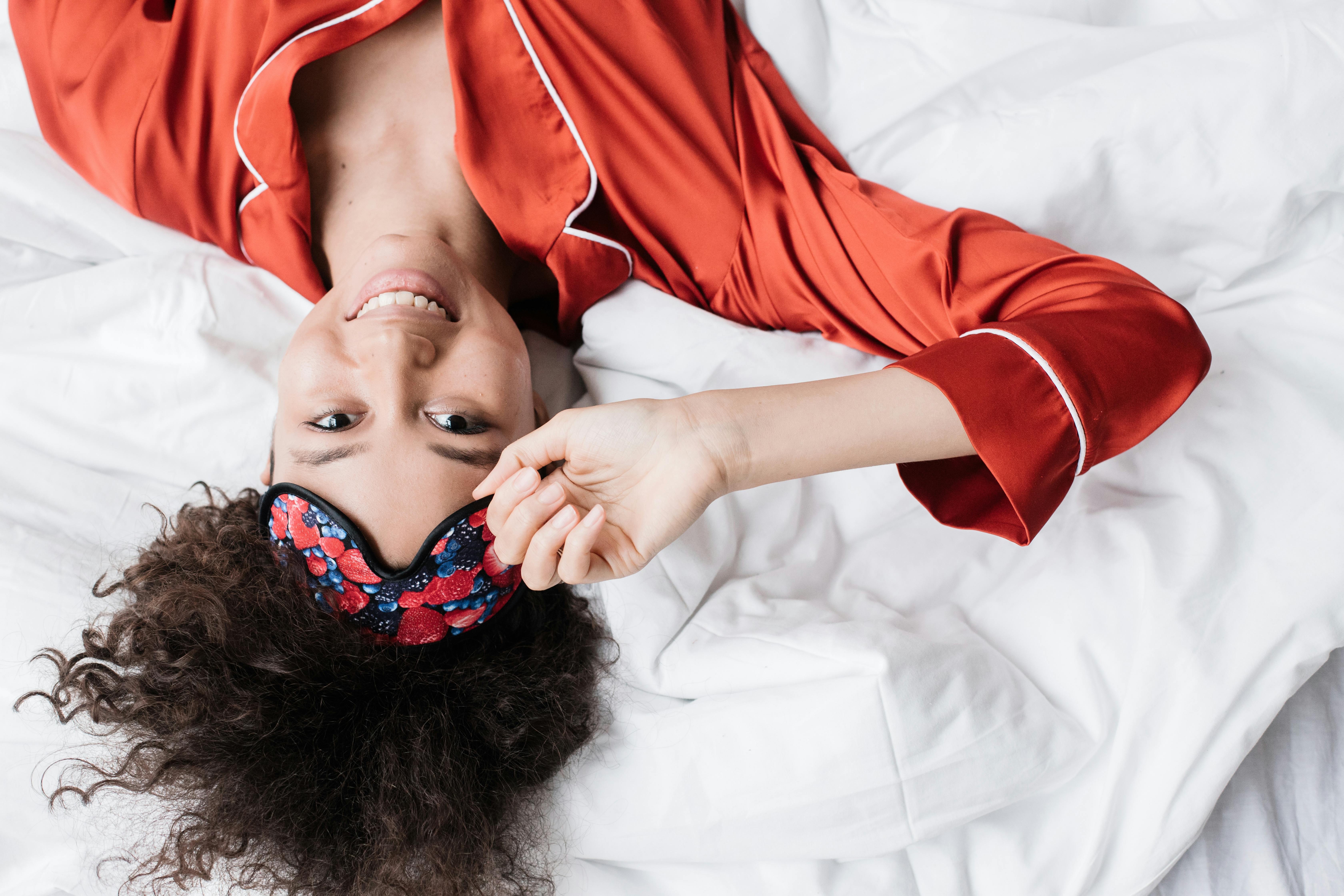
Whether you're waking up tired with no energy or struggling to stay asleep, discover simple diet tips which could make all the difference.
Sleep is essential for our health and wellbeing, yet many people struggle with getting enough quality rest. While factors such as stress and lifestyle play a role, diet can also significantly impact our sleep quality.
Getting a good night’s sleep is important to energise us through the day and helps our brain to function, it also impacts our immune system, metabolism and hormonal balance. Poor sleep can make us more prone to illness, disrupt our blood sugar balance and lead to high blood pressure, make headaches and migraines worse, and even lead to feelings of depression or low mood.
The good news is, there are some foods you can eat which help regulate sleep hormones, promote relaxation, and prevent disruptions during the night. By making a few simple dietary changes, you can enhance your ability to fall asleep and stay asleep.
1. Eat more magnesium-rich foods

Magnesium is a mineral known for its calming properties, helping to relax muscles and quieten the nervous system, as well as supporting the production of sleep-inducing neurotransmitters. So it's no surprise that a deficiency in magnesium has been linked to insomnia and restless sleep. To boost your intake, incorporate foods such as spinach, nuts, seeds, wholegrains and oily fish into your diet.
2. Consume more tryptophan-containing foods

Tryptophan is an essential amino acid that the body converts into serotonin and melatonin, both of which are needed for sleep. Foods rich in tryptophan include yogurt, cheese, oats, eggs, bananas and peanuts. Eating these foods, particularly in combination with carbohydrates, can enhance tryptophan absorption and promote better sleep.
3. Reduce caffeine and sugar intake

Caffeine is a strong stimulant that can interfere with sleep, especially if consumed in the afternoon or evening. If you're struggling with sleep, try to limit coffee, tea and caffeinated soft drinks after midday. Similarly, high sugar consumption can cause blood sugar fluctuations, leading to energy spikes and crashes that may disrupt sleep. Opt for balanced meals with protein, healthy fats and fibre to maintain stable energy levels throughout the day.
4. Eat your evening meal earlier

Eating a large meal too close to bedtime can interfere with sleep by increasing body temperature and causing digestive discomfort. Ideally, dinner should be consumed at least three to four hours before bedtime. This allows the body sufficient time to digest food, reducing the likelihood of acid reflux or indigestion disrupting sleep. If you're someone who often craves a late-night snack, be sure to choose healthier options, such as almond butter spread on a slice of wholemeal toast or apple slices.
5. Sip on herbal teas

Certain herbal teas have natural sedative properties that can promote relaxation and improve sleep. Chamomile, valerian root, and passionflower teas are particularly beneficial due to their calming effects on the nervous system. Drinking a warm cup of herbal tea in the evening can serve as a soothing bedtime ritual to help you unwind and prepare for sleep.
So, How Can What You Eat Improve Your Sleep?
Making small changes to your diet is likely to have a noticeable impact on how you sleep. By increasing your intake of magnesium and tryptophan, reducing caffeine and sugar, eating earlier in the evening, and drinking herbal teas, you should be able to get a good night's rest. Consistency is key—adopting these habits as part of your daily routine will help regulate your sleep patterns and improve overall wellbeing. If sleep issues persist despite dietary adjustments, you might want to consult a healthcare professional for further guidance.
Important Notice: This article was also published at www.bbcgoodfood.com by Isabella Keeling - Deputy health editor where all credits are due.
Disclaimer
The watching, interacting, and participation of any kind with anything on this page does not constitute or initiate a doctor-patient relationship with Veripeudic.com. None of the statements here have been evaluated by the Food and Drug Administration (FDA). The products of Veripeudic.com are not intended to diagnose, treat, cure, or prevent any disease. The information being provided should only be considered for education and entertainment purposes only. If you feel that anything you see or hear may be of value to you on this page or on any other medium of any kind associated with, showing, or quoting anything relating to Veripeudic.com in any way at any time, you are encouraged to and agree to consult with a licensed healthcare professional in your area to discuss it. If you feel that you’re having a healthcare emergency, seek medical attention immediately. The views expressed here are simply either the views and opinions of Veripeudic.com or others appearing and are protected under the first amendment.
Veripeudic.com promotes evidence-based natural approaches to health, which means integrating her individual scientific and clinical expertise with the best available external clinical evidence from systematic research. By individual clinical expertise, I refer to the proficiency and judgment that individual clinicians acquire through clinical experience and clinical practice.
Veripeudic.com does not make any representation or warranties with respect to the accuracy, applicability, fitness, or completeness of any multimedia content provided. Veripeudic.com does not warrant the performance, effectiveness, or applicability of any sites listed, linked, or referenced to, in, or by any multimedia content.
To be clear, the multimedia content is not intended to be a substitute for professional medical advice, diagnosis, or treatment. Always seek the advice of your physician or other qualified health providers with any questions you may have regarding a medical condition. Never disregard professional medical advice or delay in seeking it because of something you have read or seen in any website, video, image, or media of any kind. Veripeudic.com hereby disclaims any and all liability to any party for any direct, indirect, implied, punitive, special, incidental, or other consequential damages arising directly or indirectly from any use of the content, which is provided as is, and without warranties.

